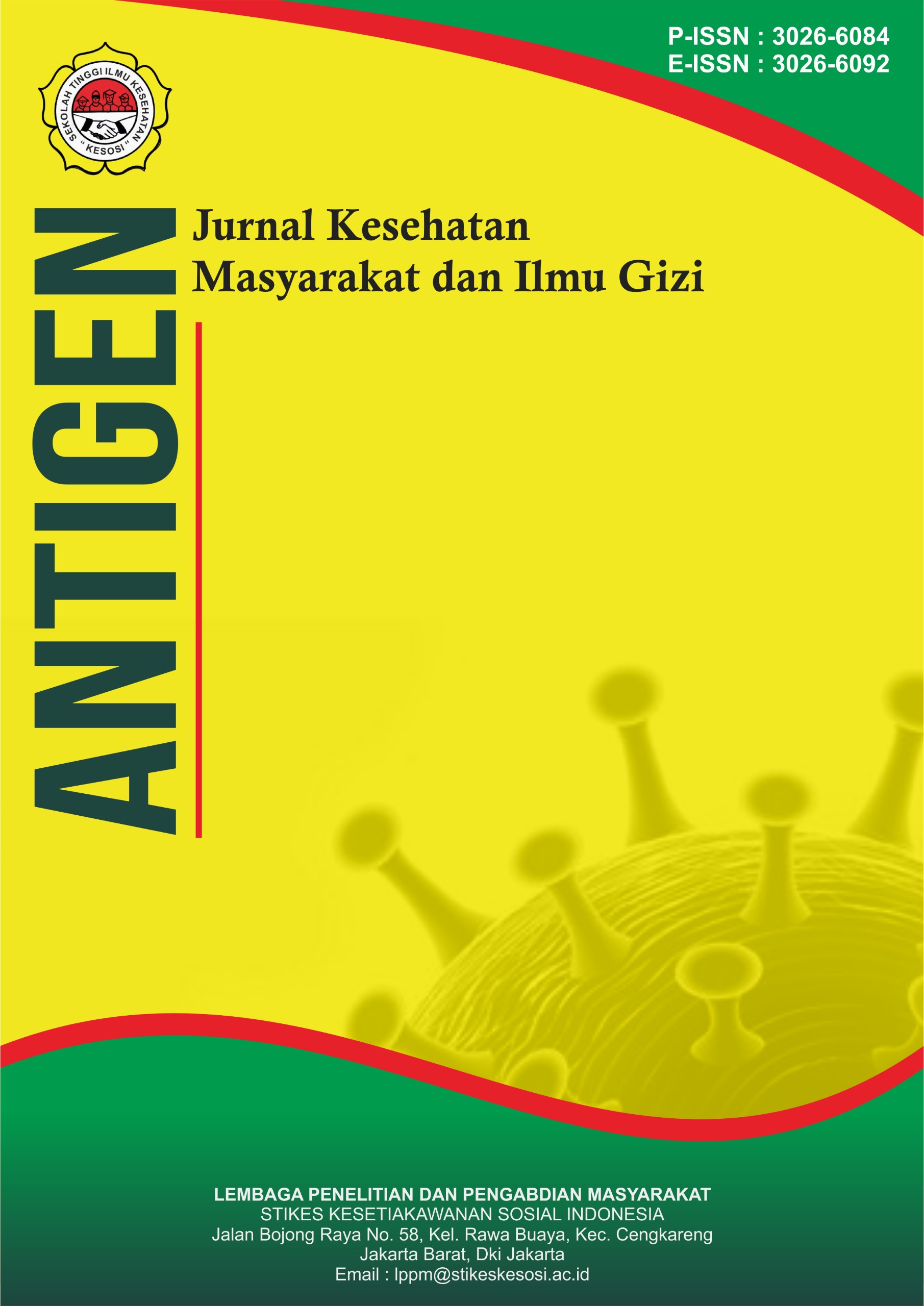Potensi Buah Jamblang (Syzygium cumini (L.) sebagai Agen Anti-Kanker yang Efektif pada Manusia
DOI:
https://doi.org/10.57213/antigen.v3i3.755Keywords:
java-plum, syzygium-cumini, anti-cancer, phytochemicalsAbstract
Cancer is a malignant disease caused by the abnormal growth of cells in body tissues, making it one of the leading causes of death worldwide. The high prevalence of cancer has driven the search for new, effective, and safe anti-cancer agents, one of which involves utilizing phytochemical compounds from plants such as Java plum (Syzygium cumini), which has attracted attention as a potential anti-cancer agent due to its therapeutic potential and low toxicity. This literature review examines recent studies on the anti-cancer activity of Java plum across various cancer types through in vitro studies. The results show that Java plum exhibits several key mechanisms in inhibiting cancer cell growth, including induction of apoptosis, cell cycle arrest, inhibition of cell proliferation, ROS production, targeting of cancer stem cells, anti-inflammatory effects, modulation of epigenetic changes, and antioxidant protection.
References
Basu, P., & Maier, C. (2018). Phytoestrogens and breast cancer: In vitro anticancer activities of isoflavones, lignans, coumestans, stilbenes and their analogs and derivatives. Biomedicine & Pharmacotherapy, 107, 1648–1666. https://doi.org/10.1016/j.biopha.2018.08.100
Charepalli, V., Reddivari, L., Vadde, R., Walia, S., Radhakrishnan, S., & Vanamala, J. K. P. (2016). Eugenia jambolana (Java plum) fruit extract exhibits anti-cancer activity against early stage human HCT-116 colon cancer cells and colon cancer stem cells. Cancers, 8(3), 29. https://doi.org/10.3390/cancers8030029
Choudhari, A. S., Mandave, P. C., Deshpande, M., Ranjekar, P., & Prakash, O. (2020). Phytochemicals in cancer treatment: From preclinical studies to clinical practice. Frontiers in Pharmacology, 10, 497776. https://doi.org/10.3389/fphar.2019.01614
Jagetia, G. C. (2017). Phytochemical composition and pleotropic pharmacological properties of jamun, Syzygium cumini Skeels. Journal of Exploratory Research in Pharmacology, 2(2), 54–66.
Kementerian Kesehatan RI. (2019). Artikel Hari Kanker Sedunia 2019. https://www.depkes.go.id/article/view/19020100003/harikankersedunia-2019.html
Khodavirdipour, A., Zarean, R., & Safaralizadeh, R. (2021). Evaluation of the anti-cancer effect of Syzygium cumini ethanolic extract on HT-29 colorectal cell line. Journal of Gastrointestinal Cancer, 52, 575–581. https://doi.org/10.1007/s12029-020-00439-3
Kumawat, M., Damor, J., Kachchhwaha, J., Garg, A. K., & Singh, C. (2018). Pharmacological properties and therapeutic potential of Syzygium cumini (Jamun): A review. World Journal of Pharmaceutical Sciences, 7, 312–322.
Li, L., Mangali, S., Kour, N., Dasari, D., Ghatage, T., Sharma, V., Dhar, A., & Bhat, A. (2021). Syzygium cumini (jamun) fruit-extracted phytochemicals exert anti-proliferative effect on ovarian cancer cells. Journal of Cancer Research and Therapeutics, 17(6), 1547. https://doi.org/10.4103/jcrt.jcrt_210_20
Maliza, N. O., Safrida, S., Hayuningtyas, A., & Ayunda, H. M. (2022). Literatur review: Potensi pengolahan dan manfaat kesehatan jamblang (Syzygium cumini L.). Jurnal Teknologi Pengolahan Pertanian, 4(2), 72–80.
Singh, N., & Gupta, M. (2018). Effects of ethanolic extract of Syzygium cumini (Linn) seed powder on pancreatic islets of alloxan diabetic rats. Indian Journal of Experimental Biology, 45.
Suhail, S. M., Anand, A., Biswas, A. S., Manjula, S. N., & Mruthunjaya, K. (2025). Anti-cancer potential of Syzygium cumini and Syzygium jambolanum extracts against MCF-7 cell line: An in vitro evaluation. Phytomedicine Plus, 5(2). https://doi.org/10.1016/j.phyplu.2025.100753
Widjaja, E. A., Rahayuningsih, Y., Rahajoe, J. S., Ubaidillah, R., Maryanto, I., Walujo, E. B., & Semiadi, G. (2014). Kekinian keanekaragaman hayati.
Downloads
Published
Issue
Section
License
Copyright (c) 2025 Antigen : Jurnal Kesehatan Masyarakat dan Ilmu Gizi

This work is licensed under a Creative Commons Attribution-ShareAlike 4.0 International License.






